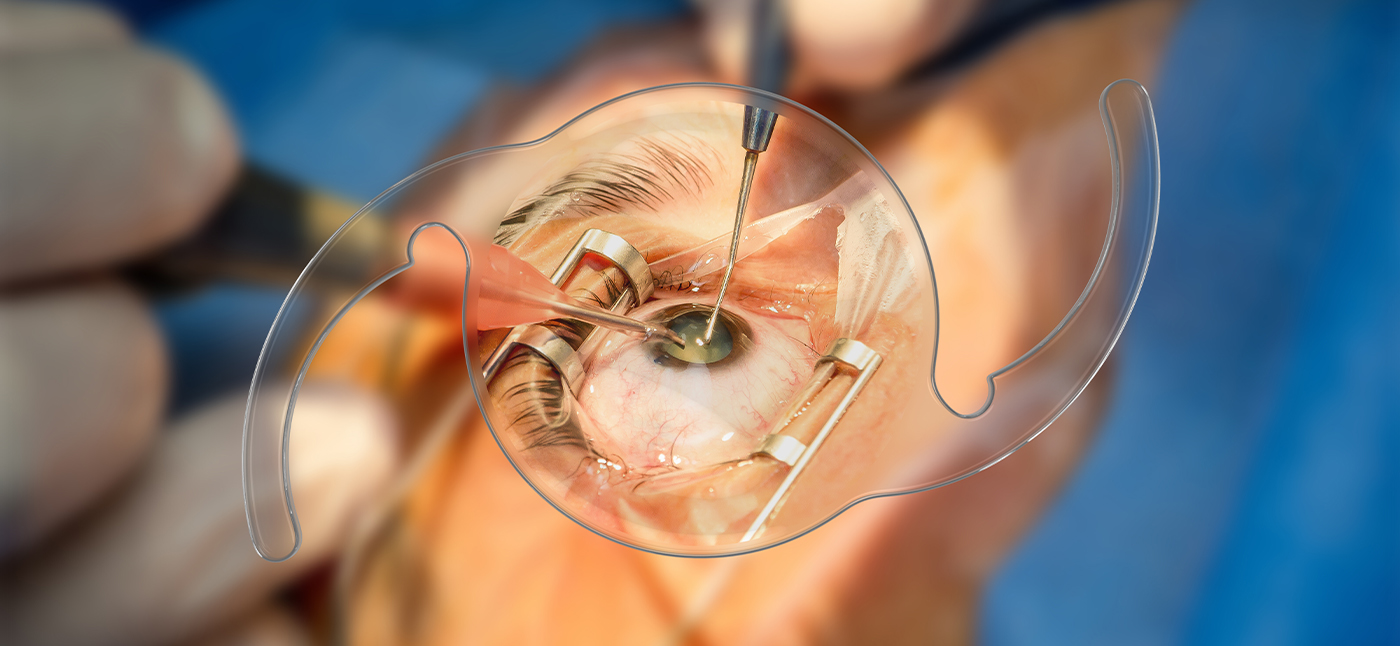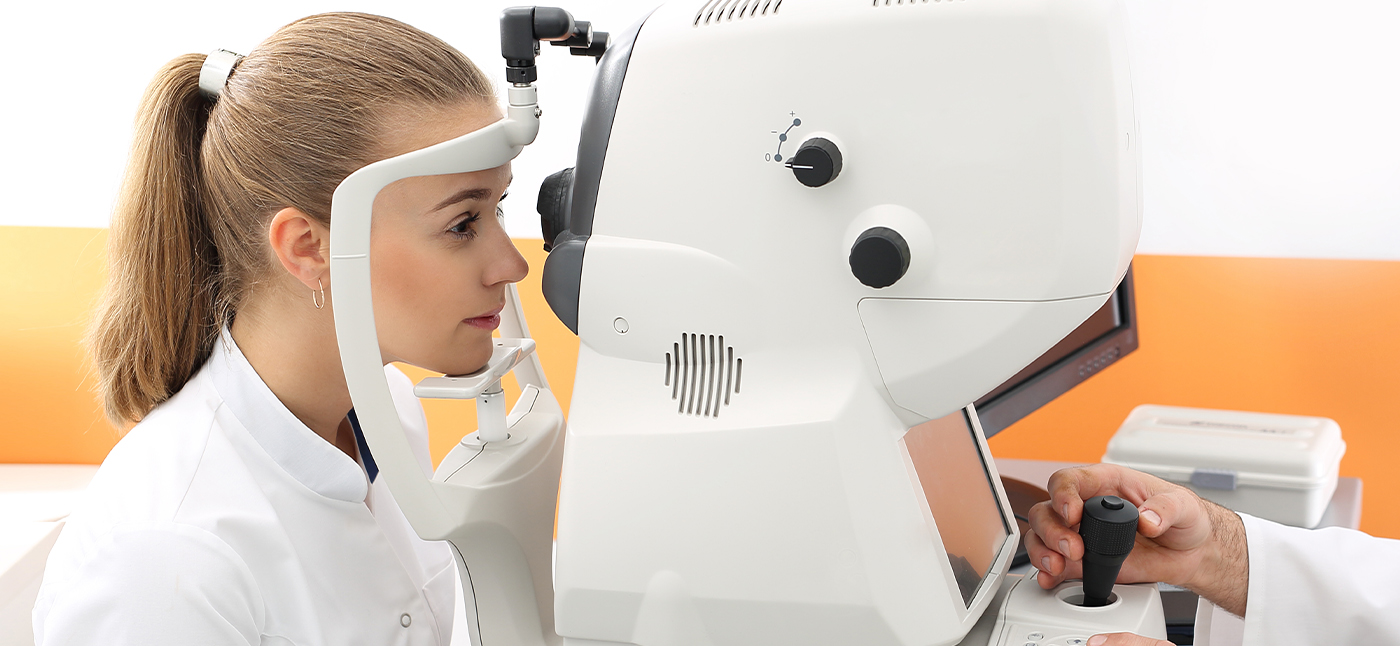Intraocular Lenses (IOL): Which One is Right For Me?
Mar 18, 2024
TECHNOLOGY,HEALTHIntraocular lenses (IOLs) are tiny, artificial lenses implanted inside the eye. They act as a replacement for your eye's natural lens, which focuses light rays allowing you to see clearly.

Thinking about improving your vision? Intraocular lenses (IOLs) are a remarkable technology implanted in the eye to correct focusing issues. With various IOL types available, each catering to specific needs, choosing the right one is crucial for achieving your desired vision correction. This guide will explore the different IOL options, helping you understand which one aligns best with your lifestyle and visual goals.
What are Intraocular Lenses?
Intraocular lenses (IOLs) are tiny, artificial lenses implanted inside the eye. They act as a replacement for your eye's natural lens, which focuses light rays allowing you to see clearly. There are two main reasons you might get an IOL:
- Correcting age-related vision changes: As we age, our natural lenses become less flexible. This condition makes it difficult to focus on near objects (presbyopia). IOLs can address this issue by providing sharper vision at specific distances.
- Treating certain eye conditions: Doctors commonly use IOLs during cataract surgery. Thus, they remove a clouded natural lens and restore clear vision. They can also implante these lenses in some cases to correct severe nearsightedness or farsightedness.
What are the Types of IOLs?
- Monofocal IOLs: These lenses provide clear vision at a single fixed distance, typically for either near or distance vision.
- Multifocal IOLs: They offer a range of focus distances. Also, these lenses can improve both near and distance vision, reducing the need for glasses.
- Toric IOLs: Specifically designed to correct astigmatism, these lenses can enhance both visual acuity and quality.
- Accommodating IOLs: Mimicking the natural lens, these lenses can adjust focus to provide clear vision at various distances.
How to Choose Right IOL for You
- Your current vision: Discuss your current vision problems with your doctor. It also includes whether you are nearsighted, farsighted, or have astigmatism.
- Your lifestyle and activities: Think about what activities you participate in that require good vision at different distances. Do you spend most of your time reading or working on a computer? Do you enjoy driving, playing sports, or other hobbies that require good near and far vision?
- Your expectations: Be realistic about what IOLs can achieve. While some IOLs aim to reduce your dependence on glasses, they may not eliminate the need for them entirely.
- Your budget: Some IOLs, such as multifocal and toric IOLs, may come with additional costs. When you compare them to standard monofocal IOLs.

IOL Process: Step by Step
It's important to understand that doctors typically perform IOL implantation during surgery. So I can't provide a step-by-step process suitable for you at home. However, I can break down the general steps involved in IOL surgery:
Before Surgery:
- Consultation and Evaluation: You'll meet your ophthalmologist (eye doctor) to discuss your vision concerns, medical history, and expectations. They'll perform a comprehensive eye exam to assess your eye health and measure your eyes. Then, they will determine the appropriate IOL type and power for you.
- Preparation: Before surgery, your healthcare provider may need to perform blood tests or other pre-operative tests. These tests ensure you're healthy enough for surgery. You'll likely receive instructions on stopping certain medications and fasting before the surgery.
Surgery:
While the exact procedure may vary slightly, here's a general outline:
- Anesthesia: You'll likely receive local anesthesia with sedation or general anesthesia. It depends on your preference and the complexity of the surgery.
- Creating the Incision: In the first step of the procedure, the surgeon makes a tiny incision. It is usually under 3mm, in the cornea. The cornea is the clear dome at the front of your eye.
- Capsularhexis (Creating the Capsule Pouch): The surgeon creates a circular opening. This opening is in the posterior capsule, which is the natural lens capsule that holds your natural lens in place. This will become the new home for the IOL.
- Lens Removal (if applicable): In cataract surgery, the surgeon uses a technique like phacoemulsification. They use this technique to break up and remove your cloudy natural lens.
- IOL Insertion: Then, doctors carefully insert folded IOL through the incision into the capsular bag. Once positioned, the IOL unfolds and takes its permanent place.
- Wound Closure: The self-sealing incision usually doesn't require stitches.
Post-Surgery:
- Recovery: After surgery, the medical team will likely monitor you for a short period before sending you home. Expect blurry vision initially, but it should improve over the following days and weeks.
- Follow-Up Appointments: Regular follow-up appointments with your ophthalmologist are crucial. During these appointments, your ophthalmologist will monitor your healing progress and adjust medications if needed.

IOL Surgery Cost and Popular Countries
The cost of IOL surgery varies based on:
- Location: It's cheaper in developing countries.
- Surgeon's Experience: More experienced surgeons charge more.
- Type of IOL Lens: Basic lenses cost less than advanced ones.
- Hospital or Clinic: Costs depend on the facility.
- Insurance: Some plans cover part or all of the cost.
These are still estimates and actual prices can vary:
- Turkey: €2,500 to €2,700 per eye (approximately).
- UK: €5,000 to €10,000 per eye (approximately).
- USA: €4,000 to €8,000 per eye (approximately).
Utilize our platform, Wupdoc, to thoroughly research and select the ideal clinic for your intraocular lens (IOL) needs. Browse profiles of top doctors and clinics that specialize in IOL procedures and other eye care services. You can also read patient reviews and comments to gain insight into the quality of care offered by each clinic.
top 5 doctors & clinics in Intraocular Lenses:
 5.0Turkey, Antalya
5.0Turkey, AntalyaEye Care
Dr. Dorukcan Akıncıoğlu, a specialist in Smart Lens, NoTouch Laser, Lazy Eye, and a range of other eye conditions, offers expert care and innovative treatments. With a background in Gülhane Military Medical Academy, Dr. Akıncıoğlu has extensive experience in Orbital Tumors, Thyroid (Graves) Orbitopathy, Ectropion Correction, and more. His expertise also includes Entropion Correction, Eyelid Tumors, Eye Tumors, and Revision Eyelid Surgery. Dr. Akıncıoğlu is skilled in Orbital Decompression, Orbital Fractures, and treating Tear Duct Blockage. He specializes in addressing Congenital Face - Head Anomalies, providing Droopy Eyelid Treatment, and managing Facial paralysis. Additionally, Dr. Akıncıoğlu performs surgeries such as Movable Eye Prosthesis, Socket Reconstruction, Eyelid Reconstruction, Epithesis Surgery, and Orbital Reconstruction. Trust your eye care to Dr. Akıncıoğlu for personalized treatments and compassionate care.
# 1
 5.0Albania, Tirana
5.0Albania, TiranaEye Care
Art Eye Clinic offers top-quality care for your vision, providing advanced treatments for a range of eye conditions. Specializing in cataract operations, intraocular lens placement, glaucoma treatment, and pterygium operations, we help patients maintain their eye health with the latest medical techniques. Whether you're looking to restore your vision or manage eye diseases, our experienced team ensures effective and personalized care. Visit Art Eye Clinic for comprehensive solutions and expert treatment, ensuring your eyes remain healthy and your vision stays clear.
# 3
 4.8Turkey, Antalya
4.8Turkey, AntalyaEye Care
Established in 1991 in Antalya, the Orbit Medical Centre offers top-notch medical services to the city and the Mediterranean region. The Centre's emphasis on collective efforts and professional interdependence has earned it a reputation as the premier ophthalmological care provider in the region. With its advanced infrastructure, the Centre's ophthalmologists share their knowledge and experience, with particular focus on excimer laser, cataract, glaucoma, keratoconus, and diabetic treatments. The Centre upholds ethical and deontological principles, and prioritizes patient treatment over commercial interests, resulting in patients' trust and establishing the Centre as a model organization.
# 4
 5.0Spain, Barcelona
5.0Spain, BarcelonaEye Care
The Castanera Institute of Ophthalmology founded in 1954, is a leader in ophthalmology, blending tradition with pioneering use of advanced technologies and techniques. Our commitment to scientific research ensures the highest quality of care. Specializing in a range of eye treatments, we offer solutions for cataracts, LASIK, intraocular lenses, retina conditions, glaucoma, and presbyopia. With decades of experience and a dedication to innovation, the Castanera Institute provides exceptional eye care to help you achieve optimal vision. Trust our expert team for your eye health needs and experience the best in modern ophthalmology. Visit the Castanera Institute for cutting-edge treatments and personalized care.
# 5
Get a Free Quote
Let Us Help You Find the Best Doctors for Your Needs
Fill out the form, and an assistant will contact you shortly to discuss your needs and guide you to top specialists.

Table of Contents
read this next:
Feb 26, 2023
HEALTH,INSIGHTSIntraocular Lenses
Intraocular lenses (IOLs) are artificial lenses that are surgically implanted in the eye to replace the eye's natural lens, which has been removed due to cataracts or other eye conditions.
Looking for the Right Treatment?
Let us find the best doctors & clinics you need. Get your free quote today!
Get a Free Quote



